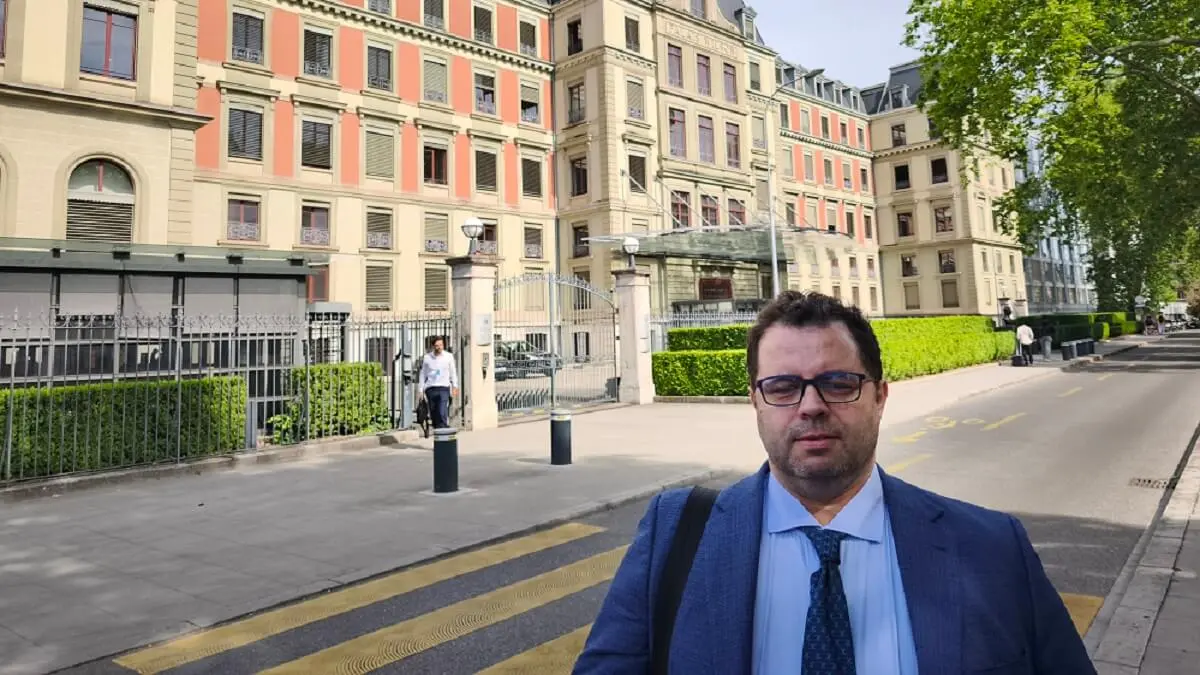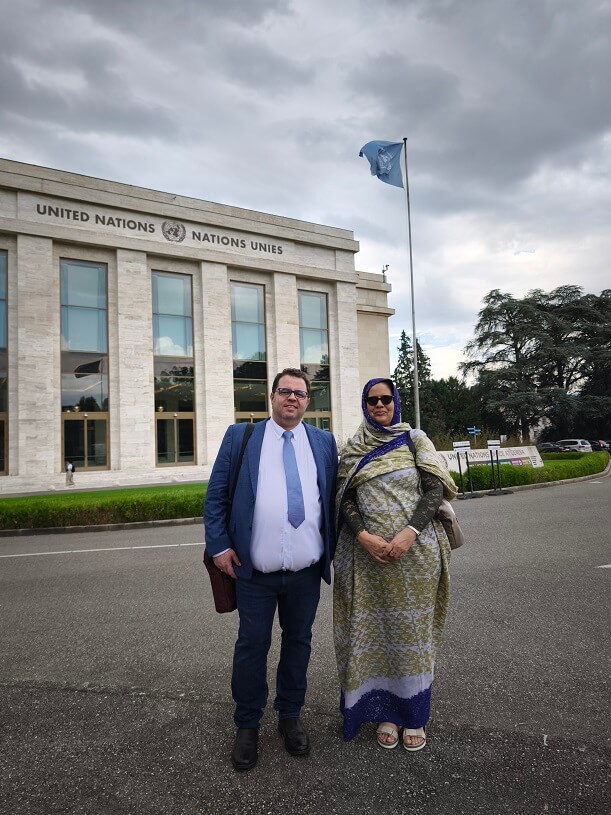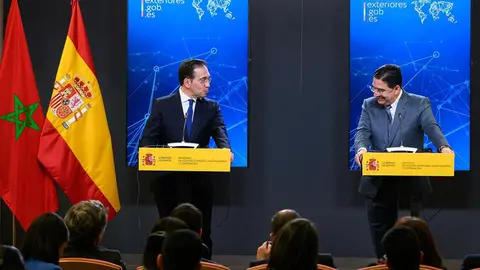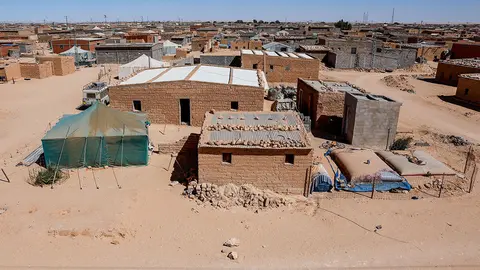The Fórum Canario Saharaui denounces serious human rights violations in the Tindouf camps before the UN

- Institutional presence in Geneva
- Documented violations
- Criminal and terrorist activities
- Urgent requests to the international community
- Context of the 59th Session of the Human Rights Council
- Algeria's responsibility
The Fórum Canario Saharaui has officially delivered a letter of complaint to the United Nations High Commissioner for Human Rights, Volker Türk, denouncing the serious and systematic human rights violations being perpetrated in the Tindouf camps under the administration of the Polisario Front. The letter was delivered during the 59th session of the Human Rights Council, which is taking place from 16 June to 11 July 2025 at the United Nations headquarters in Geneva.
Institutional presence in Geneva
During this week, a delegation from the Fórum Canario Saharaui, led by its president Ignacio Ortiz Palacio, has carried out an intense programme of work in Geneva to raise international awareness of the critical humanitarian situation in the Tindouf camps, presenting exhaustive documentation on the systematic violations committed against the Saharawi population.
The official letter, addressed specifically to Volker Türk and the Office of the High Commissioner for Human Rights, has also been sent to the Human Rights Council, the Special Rapporteur on Torture and Other Cruel, Inhuman or Degrading Treatment or Punishment, and the Working Group on Enforced or Involuntary Disappearances.
Documented violations
The complaint documents multiple categories of systematic abuses, including extrajudicial executions, enforced disappearances, systematic torture, modern slavery and racial discrimination. Since 2014, at least 21 cases of extrajudicial executions or attempted executions have been recorded, with the majority of victims being young Sahrawis involved in subsistence activities.
The document presented includes the emblematic case of Ahmed Khalil, former human rights adviser to the Polisario, who was abducted by DRS agents in Algiers on 6 January 2009. The UN Human Rights Committee upheld his family's claims in its decision of 27 March 2020, addressing the lack of effective remedies before Algerian courts for Sahrawi refugees.

Criminal and terrorist activities
The complaint also exposes the Polisario Front's involvement in terrorist activities in the Sahel region, highlighting the case of Adnan Abou Walid Al-Sahraoui, a former Polisario leader who founded MUYAO and joined Daesh in the Sahel.The African Centre for Studies and Research on Terrorism has identified former Polisario combatants who have joined the ranks of AQIM and MUYAO.
It also denounces the systematic diversion of humanitarian aid, including the 105 million euros provided by the European Union between 1994 and 2004, as reported by the European Anti-Fraud Office (OLAF) in 2015.
Urgent requests to the international community
The Fórum Canario Saharaui has formally requested immediate and unrestricted access for international human rights organisations and the UN itself to the Tindouf camps to carry out independent verification missions. The organisation also demands that a transparent census be carried out under international supervision of the populations held in the camps and that an international mechanism be established to monitor the distribution of humanitarian aid.
Context of the 59th Session of the Human Rights Council
The 59th session of the Human Rights Council is taking place against the backdrop of a liquidity crisis at the United Nations, which has led to the adoption of urgent measures to fulfil the Council's mandate. During this session, the interactive and reinforced dialogues last only 1½ hours, and the time allocated for NGO interventions is only 15 minutes.
Despite this, the presence of the Fórum Canario Saharaui in Geneva is part of its international advocacy strategy to raise awareness of a humanitarian crisis that has been unresolved for almost five decades. The organisation has highlighted that the Tindouf camps have become an area of impunity and ‘lawlessness’ where fundamental rights are systematically violated.
Algeria's responsibility
Finally, in its complaint, the Fórum Canario Saharaui pointed out the complicity of the Algerian State, which has delegated its responsibility for protection to an armed group with no legal legitimacy or recognised mandate. Algeria, as the host State, remains responsible for ensuring respect for human rights on its territory, an obligation that it has systematically failed to fulfil.










